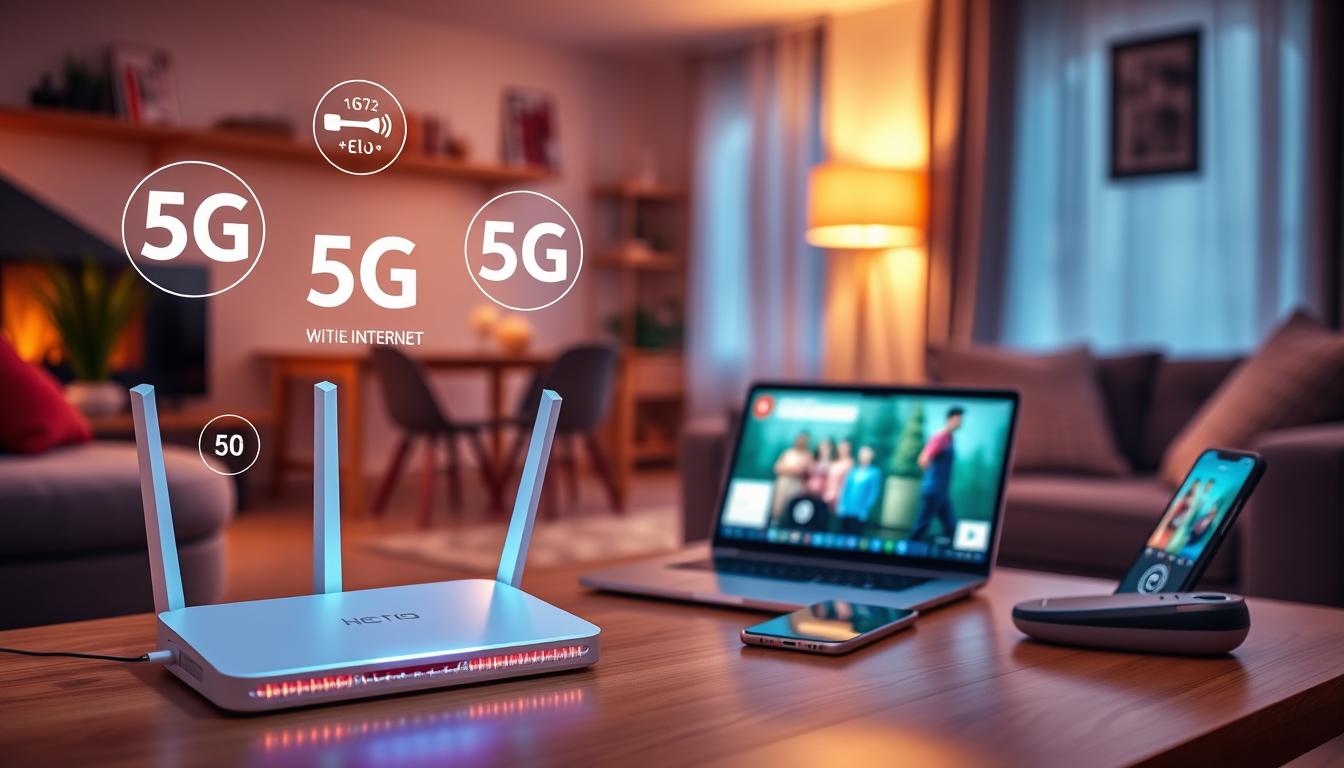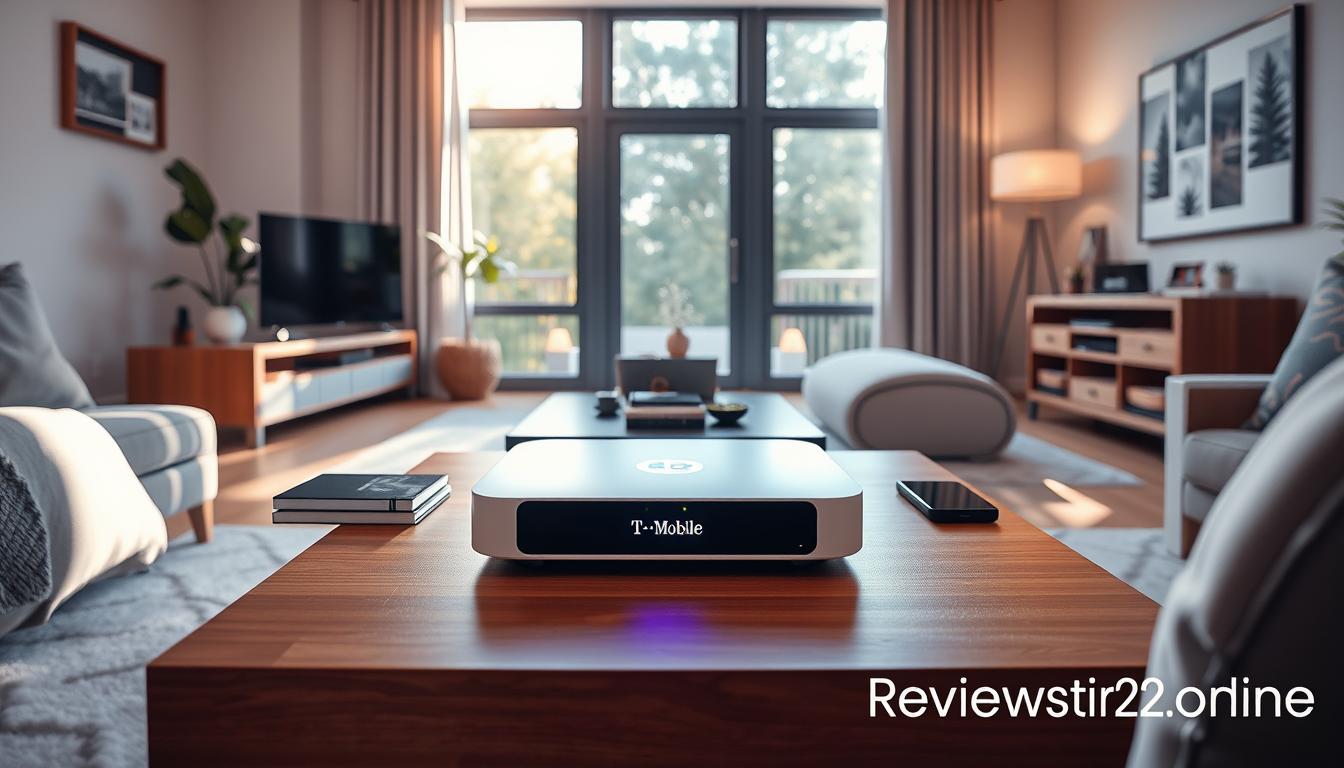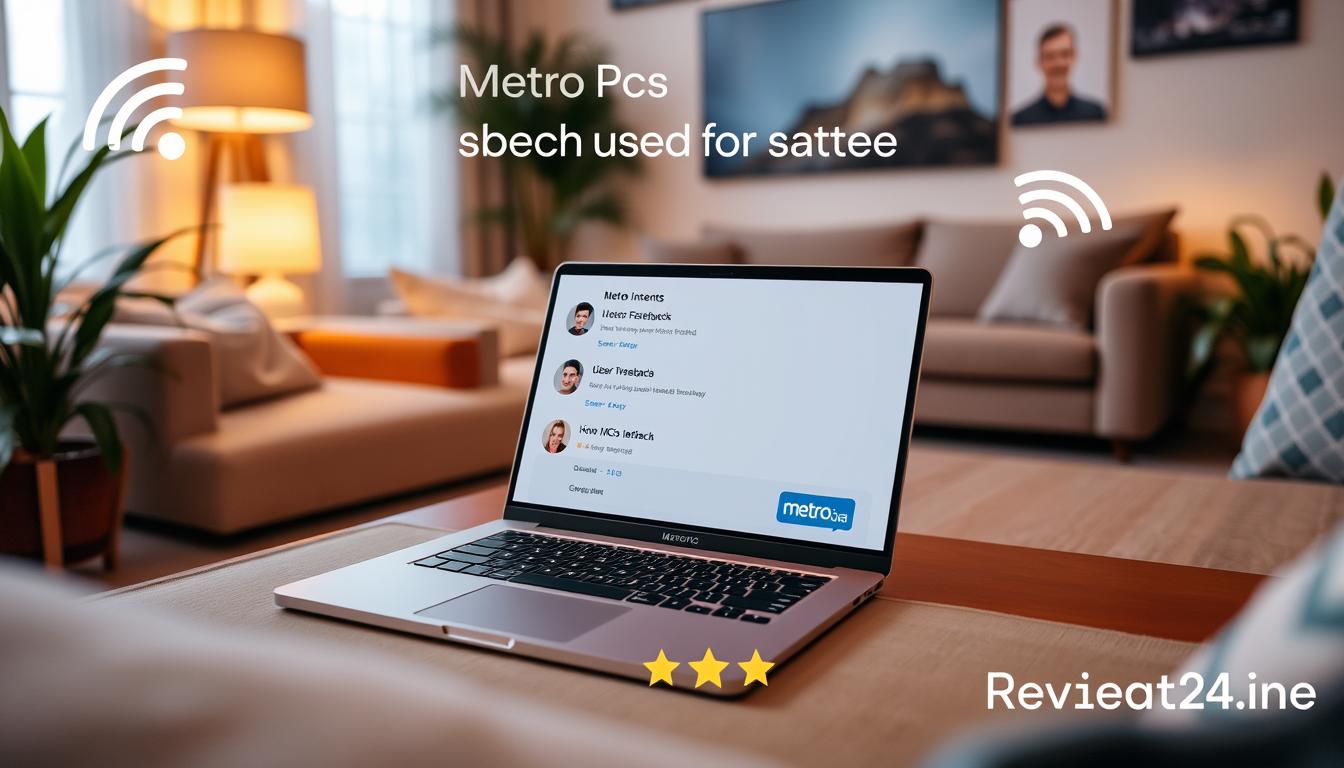Mobile 5G Home Internet Reviews: Top Provider Ratings
The world is moving towards better connectivity, and mobile 5G home internet is leading the way. This new tech is changing how we get online, especially in places where old wired systems don’t work well. We’ll look at the best 5G home internet providers, their services, how well they perform, and their future impact on home connections.
5G technology is bringing fast, reliable internet to homes. It’s faster, has less delay, and works better than before. More and more, people are choosing 5G broadband internet. It promises to connect everyone, no matter where they live, with fast, quality internet.
Key Takeaways
- Mobile 5G home internet is a growing alternative to traditional broadband solutions.
- 5G technology offers faster speeds, lower latency, and greater reliability for home internet users.
- Top 5G home internet providers are competing to deliver the best possible service and coverage.
- The availability of 5G home internet has the potential to bridge the digital divide, especially in rural areas.
- Comprehensive reviews of the top 5G home internet providers can help consumers make informed decisions.
Understanding 5G Fixed Wireless Access: The Future of Home Internet
5G technology has changed how we connect to the internet at home. 5G fixed wireless access (FWA) is leading this change. It uses 5G networks to bring internet directly to homes and businesses. This is especially helpful in areas where regular internet is hard to get.
5G FWA brings faster and more reliable internet speeds. It’s up to 10 times faster than 4G LTE and has very low latency. This makes it great for streaming, gaming, and working from home, in both cities and rural areas.
Setting up 5G FWA is easy and quick. You just need a small router or modem. This is a big plus for those who have had trouble with the complex setups of traditional internet services.
As 5G networks grow, so will the options for 5g home wifi and rural 5g internet using 5g fixed wireless access. This will change how we use the internet at home.
“5G fixed wireless access is a game-changer for home internet, delivering ultra-fast speeds and low latency to areas where traditional broadband may be limited or unavailable.”
5G FWA is set to be the future of home internet. It will bring fast and reliable internet to more people. This will help bridge the digital gap and improve connectivity for everyone, no matter where they live.
Mobile 5G Home Internet Reviews: Provider Comparison
5G technology is changing how we connect at home. Mobile internet providers are now offering fast 5G home internet. Let’s look at what T-Mobile, Verizon, and AT&T have to offer.
T-Mobile Home Internet
T-Mobile’s 5G Home Internet is known for its fast speeds and wide coverage. It offers download speeds up to 182 Mbps. The service costs $50 a month and has a 4.6-star rating from over 150,000 reviews.
Customers love how easy it is to set up and how reliable it is.
Verizon 5G Home
Verizon’s 5G Home internet is super fast, with speeds up to 1 Gbps. It starts at $50 a month. Users say it’s great for streaming, gaming, and working from home.
Verizon is working to bring 5G to more areas soon.
AT&T Fixed Wireless
AT&T’s Fixed Wireless Access uses 5G for reliable internet in areas without traditional broadband. It offers speeds up to 500 Mbps. The service starts at $59.99 a month.
Customers like how easy it is to set up and how well it works.
As 5G gets better, these providers are leading the way. They offer fast, affordable, and easy-to-get home internet. This comparison helps you choose the best 5G internet for your home.
5G vs Fiber Optic: Making the Right Choice for Your Home
The digital world is changing fast, and choosing between 5G home internet and fiber optic is key for today’s homes. Both have their own benefits, and knowing the differences can help you pick the best one for your needs and where you live.
Speed is a big deal, and 5G can be very fast, sometimes even faster than fiber optic. But, how well 5G works depends on where you are. Fiber optic, though, is known for being steady and reliable, perfect for those who want a stable connection.
Cost is also important. 5G is often cheaper, which is good for those watching their budget. Fiber optic might cost more upfront but can save you money in the long run because of its speed and dependability.
FAQ
What is 5G home internet, and how does it differ from traditional broadband?
5G home internet uses 5G cellular networks to connect homes and businesses. It’s different from traditional broadband, which needs cables or fiber-optic lines. 5G home internet is wireless, making it faster to set up and more accessible in areas without wired connections.
What are the benefits of 5G home internet?
5G home internet is faster and more reliable than traditional broadband. It also has lower latency. Plus, it offers better coverage, especially in rural areas where wired internet is scarce.
Which are the top providers of 5G home internet?
In the US, T-Mobile, Verizon, and AT&T lead in 5G home internet. They’re expanding their 5G networks to serve both city and rural areas.
How do the top 5G home internet providers compare?
When looking at the top providers, consider coverage, speeds, prices, and customer satisfaction. T-Mobile, Verizon, and AT&T each offer unique plans. Choose the best one based on your household’s needs.
How does 5G home internet compare to fiber optic internet?
Both 5G home internet and fiber optic internet are fast. But they work differently. Fiber optic internet is often faster and more reliable. 5G is better for areas without wired connections. Your choice depends on availability, cost, and your household’s needs.




